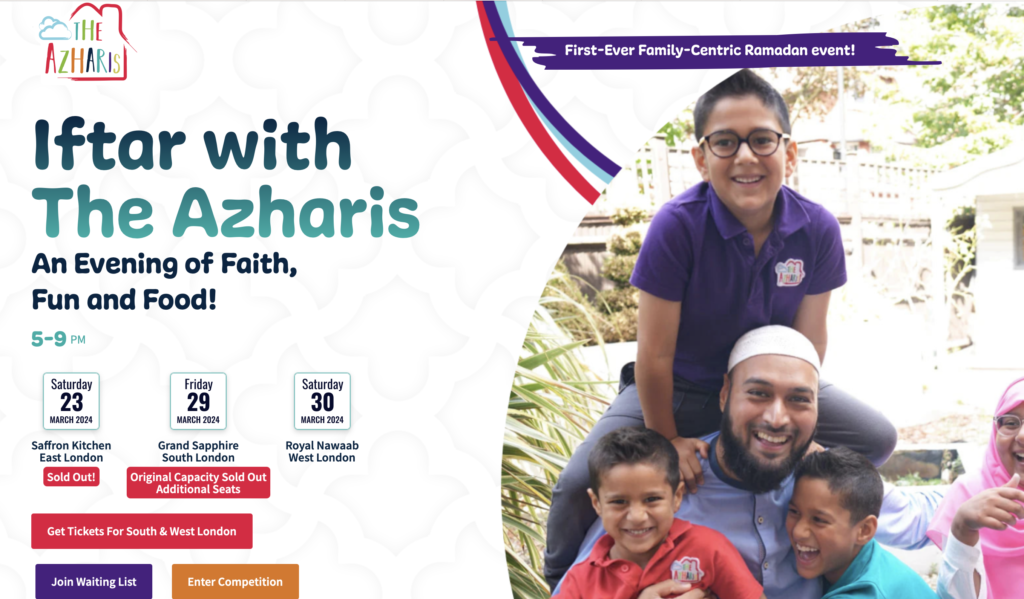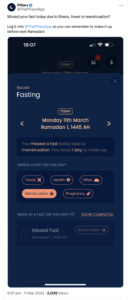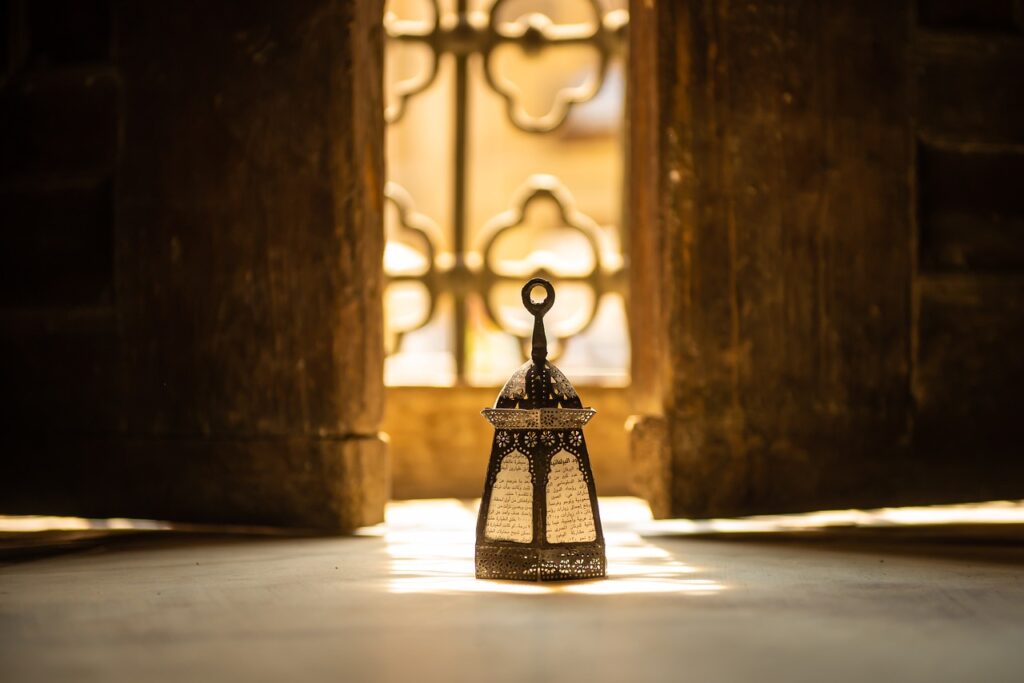This article can be read in conjunction with Digital British Islam’s Ramadan 1445 Collection.
Ramadan is a month of worship but also a month of community, and in terms of religious and communal activity, it surpasses by far the rest of the year for Muslims in Britain and globally. And just as mosques and homes host special events and initiatives for this month, so too are there special Ramadan editions and new content produced by online platforms. This subject of this content ranges from spirituality and relatable religious advice regarding how to make the most of the sacred month, its benefits. There is religious guidance regarding specific rulings of worship, prayer, fasting, charity and zakah. Then there is commercial content – including reviews and paid adverts from influencers showcasing Ramadan related products, lifestyle tips, inspiration and experience. Finally, there is what we might call ‘relatable content’ – which includes some photo/video content, comedy and satire, as well as reviews of experiences that can be broadly categorised into the ‘diary’ genre.
Impossible as it is to capture an authoritative overview of the fluidity and dynamism, I will highlight here a few examples of interesting digital content that have been produced by British Muslims this Ramadan.
First up, at the start of the month, Now In a Minute Media released their annual Ramadan campaign video, entitled The Son and the Moon. Telling a heart-warming short story about intergenerational shared values through moonsighting and the outdoors, it was written, acted and produced by Welsh Muslims.
Shelina Janmohamed released ‘Muslim Women Talk Ramadan’, a podcast where she discusses Ramadan experiences with a series of high profile Muslim women. The show describes itself as ‘your BFF, Ramadan pep talk and weekly hug all wrapped up in one’ and is produced in cooperation with the Muslim Mind Collaborative and Islamic Relief.
Fundraising and charitable giving is a major part of Ramadan, and most community initiatives and institutions hold specific Ramadan fundraising drives. This year, Muslim women’s platform, Amaliah, launched the Women’s Zakat Fund, in partnership with the National Zakat Foundation (NZF). The fund seeks to promote economic justice for Muslim women in the UK, recognising them as a marginalised group facing hardship across housing, employment, healthcare, and education, addressing these needs from the standpoint of
‘community solidarity in action’. There are also numerous smaller-scale fundraisers for defined projects and campaigns organised by grassroots groups, and crowdfunding sites run by British Muslims, such as Givebrite, Muslimgiving.org and Sadaqah.io all experience dramatic increasers in fundraisers and site traffic during the month.
In children’s content, The Azharis, a father-and-children youtube show, released its annual Ramadan educational series, this year focusing on Quranic Parables. For the first time, they are also organising three in-person iftar events, incorporating a live show and an educational, spiritual, family-centred experience. It is interesting to consider how this hybrid offering, of sorts, illustrates the interplay between the digital and the in-person in communal and faith experiences during the sacred month.

Iftar with The Azharis – screenshot
Pillars App, a popular prayer times application, launched this month a special Ramadan tab. This gives users options to monitor their fasts, including recording missed fasts, to facilitate ‘making them up’ at a later date. It also highlights Fajr and Maghrib, the two prayers linked to the start and end of fasting, and incorporates a donation tool in partnership with My Ten Nights, to facilitate automated charitable giving.

Pillars App – screenshot (click to magnify)
Ramadan Radio stations have been a constant feature of the British Muslim seasonal landscape since the 1990s, and although platforms for religious and community content have developed and diversified hugely since those early days, these local radio stations remain a fixture in communities across the country. Some operate at other times during the year, for instance, during the Hajj season, others now broadcast throughout the year, like Luton’s Inspire FM and Birmingham’s Unity FM, and still more now offer selected radio content in podcast form, such as Glasgow’s Radio Ramadan 365.
Social media, as ever a space for networking and organising, often witnesses the growth of new initiatives and the mobilisation of collective responses to current events. With the communal devastation experienced in the context of the ongoing Israeli assault on Gaza, upbeat and celebratory content has been markedly and deliberately muted this year. Additionally we have seen social media galvanise collective voices around this issue – for instance momentum gathering in social media platforms around objections to iftars and events continuing to be held with ‘business as usual’ in political spaces, or Prime Minister Rishi Sunak’s recent visit to Regent’s Park Mosque in London.
These are just some of the ways in which digital tools are being used to explore and facilitate faith, worship and community. If you know of any interesting examples we should include in our archive, please let us know about it. The Digital British Islam team can be reached via Facebook and X.

